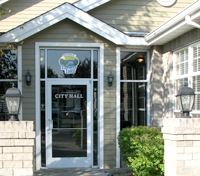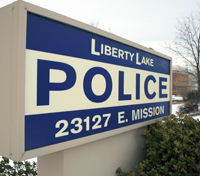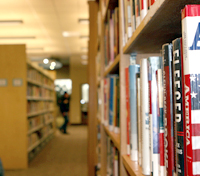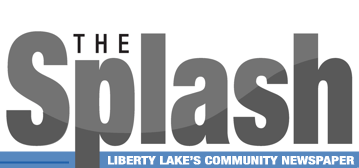 |
Money Matters
2/29/2012 12:51:34 PM
By Kelly Moore
Splash Staff Writer
Council Member Odin Langford was the first to raise a question the Liberty Lake City Council can't seem to shake.
"Last year, I sat through this budgeting process, and we all agreed we had a major problem," Langford said in a Nov. 15 meeting. "Less than a year later, we have a $3 million surplus. … Someone needs to explain to me how that happened."
Since finishing 2011 with enough ending balance to payoff a $583,105 debt, the city has continued into 2012 with spending on projects like painting Council Chambers and expanding the police fleet. Mayor Steve Peterson announced efforts to break ground on a phase of the Civic Center project and the library board presented a formal request to expand its budget by $36,000.
"My problem is we sat here and got berated on a regular basis for how we were spending money," Council Member Cris Kaminskas said at the meeting. "Now all the sudden there's all this money to spend. … We were accused in the past of putting together a slush fund, and that's exactly what it's looking like." Advertisement

Later in the same meeting, Council members discussed a budget amendment to allow the police department to purchase three cars instead of one this year. The purchase effectively caught the department up on a vehicle rotation plan established years before.
"I don't want this to look like we're on a spending spree with the city's money, and right now, that's what it's looking like," Council Member Shane Brickner said.
To address mounting concerns, Finance Director RJ Stevenson is preparing to present a clear picture of the city's finances to the Council at its March 6 meeting. He said he hopes a clearer explanation of where the city sat in 2010 - and where it sits now - will answer lingering questions.
|
City Spending Considerations
|
|

City Hall
Since 2010, city leaders have agreed to additional spending for a city administrator, which was added to the 2012 budget last December. The city also paid off a $583,105 debt for Trailhead Golf Course.
|
|

LLPD
The Liberty Lake Police Department received approval Feb. 21 to purchase three new patrol cars for the current year – two more than what was budgeted for in December.
|

The library
Municipal Library Board President John Loucks presented to the board asking to expand the library's staffing with a $36,000 addition to its current budget. When asked about the timing of his presentation, Loucks said he was told money was available.
|
"It's not uncommon to find cities do budgets underestimating incomes and overestimating expenditures, especially with the economic climate we've had," said Stevenson, who was hired last year. "It's almost like a worst-case-scenario budget. … My guess is that they were probably painting a picture at that time that was a bit more bleak than what played out."
In all fairness, Stevenson said sales tax revenue - what he views as the strongest indicator of economic health - had an unexpected rebound last year. From 2007 to 2010, sales tax revenue steadily declined from $2.2 million to $1.6 million. Rather than continuing its decline, it earned the city $1.9 million last year.
The financial forecast presented to the Council in 2010 while planning for budget cuts and the utility tax was taking place showed sales tax revenue slowly growing to $1.875 million by 2016.
Another unexpected boon was the utility tax income. When the Council set its rate at 6 percent for 2011, it budgeted the revenue at $825,000. Projected revenue showed it slowly increasing to $956,401 by 2016, yet last year it brought in $1.1 million right out of the gate.
"I think the numbers speak for themselves," Stevenson said. "I'm just basing this on the actual numbers that came in."
In addition, he said he also adjusted an across-the-board annual inflation rate of 5 percent on expenses. He said in areas like supplies, the rate seemed unreasonably high.
"The utility tax comes very close to what our capital needs are based on the 3 percent rate," Stevenson explained. "That's how moving forward, I'd want to use that. We have a hard time funding our capital needs without it. … If you want to have a capital facilities plan and really start approaching these projects, yes, you need a utility tax."
Moving forward, he said he planned to keep a close eye on sales tax revenue, reporting monthly numbers to the Council and advising based on what current trends show.
Evaluating the utility tax and other revenues
When considering revenues like the utility tax, Peterson said the most important aspect would be to seriously evaluate the cost vs. the benefit, asking what the community wants, how much it costs and what it's worth.
In addition to the utility tax, he said the city needed to evaluate and clearly track all sources of revenue, ensuring each funds what it is meant to fund. As an example, he explained the admissions tax at the golf course is meant to fund city beautification, though presently it's difficult to track.
Council members expressed mixed views on the utility tax and using it to fund capital projects. Council members Dan Dunne and Brickner both noted its value as a reliable revenue source, but stressed a need to discuss what it ends up funding.
"I think we all know the utility tax rate at 6 percent was a lot," Council Member Keith Kopelson said. "We did well to reduce it, but when there's this discussion about money coming in, I think we need to take a hard look at reevaluating the rate."
Should the city have money to spend, Council Member Susan Schuler said her first thought would be about repealing the tax altogether and seriously considering whether the city needed it to be fiscally sound and responsible.
|
What caused the shortfall back in 2010?
Finance Director RJ Stevenson explained that in the budget forecast used in 2010, the year the Liberty Lake City Council passed the utility tax, revenue for coming years was underestimated, creating a dimmer-than-necessary picture.
Budget forecast presented in 2010
|
Sales Tax |
Property Tax |
Utility Tax |
| 2011* |
$1,650,000 |
$1,769,302 |
$825,000 |
| 2012 |
$1,683,000 |
$1,786,995 |
$849,750 |
| 2013 |
$1,716,660 |
$1,804,865 |
$875,243 |
| 2014 |
$1,768,160 |
$1,822,914 |
$901,500 |
| 2015 |
$1,821,205 |
$1,841,143 |
$928,545 |
| 2016 |
$1,875,841 |
$1,859,554 |
$956,401 |
* actual budgeted amounts
2011 actual revenues
Sales tax: $1.9 million
Property tax: $1.769 million
Utility tax: $1.1 million
|
"When we passed the tax, we were told we were running out of money, and we needed to cut back," Schuler said. "The intention of that tax was never to fund capital projects. … Many of us stressed a desire for it to be temporary, like a bridge loan to get us through the economic downturn."
Kaminskas echoed her sentiment, saying she'd like to see operating expenses going down where possible and using the money saved from that to fund capital projects. She said the city's finance committee is currently reviewing small ways to save money, like consolidating phone plans and credit cards.
"If we're using the utility tax to fund things other than what we said we'd use it for, that's dishonest," Council Member Josh Beckett said. "If there's excess money coming from the utility tax, we need to stop what we're doing and eliminate it or at least say time out and have a serious discussion about it."
Plotting the next steps
Should the Council determine money is available to spend on capital projects, most said an import step in determining the priority would involve an evaluation of the city's capital projects list and openly discussing the city's needs.
In Peterson's inaugural speech, he introduced plans to develop the city's 6.4-acre lot along Appleway Avenue. Since the presentation, little formal Council discussion has taken place on the matter.
If the city were able to move forward with any project, Dunne said the first step would be determining exactly how much money could be spent. The next steps would be an evaluation of the capital projects list and a survey of city staff needs.
"The obvious concern is that there seems to be a couple projects on the fast track, and that may not be the Council's intent," Kopelson said. "The parking lot on the 6.4 acres seems like it's moving very quickly. I think we need to slow it down and really evaluate if that's what we want to do. … I think we have to understand that there's no rush to spend money."
Brickner didn't disagree with the idea of developing the Civic Center, or its first phase being a parking lot, but he said the Council needed to seriously evaluate and consider other projects before acting too quickly.
"I think (the Civic Center) is a necessity and a value to the city, but there are other things we need to evaluate as priorities," he explained. "Personally, I'd like to look into spending money to put in a light at Harvard Road to make the I-90 exit safer."
Kopelson, Brickner and Schuler all expressed interest in improvements to make the I-90 interchange at Liberty Lake safer.
Beckett said improvements to the Harvard and Mission Road intersection would top his list if the money to do it were available. In full disclosure, he noted the drawback of such a project includes a liability: When I-90 widening construction reaches Liberty Lake, there's a chance improvements made by the city would be torn out.
"Personally, I'm willing to take that risk because I think it's a public safety issue," Beckett added.
Beckett continued, saying that ultimately the direction of the city needs to come from the mayor - and it needs to be the right direction.
"Really, the ball is in the mayor's court," Beckett said. "Despite my frustrations with the way things have kicked off this year, I'm optimistic that when the dust settles we'll be able to come to an honest middle ground and get stuff done."
|
 |
